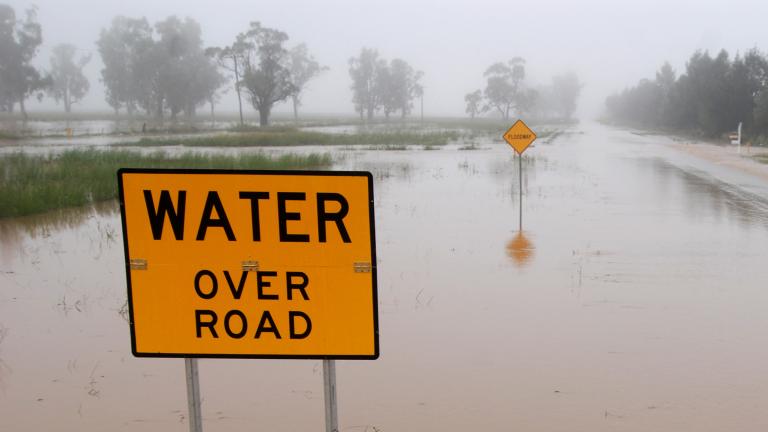Club Industry’s Contribution to Australia’s Disaster Resilience
- Community
- Policy

During natural disasters, clubs have time and again proven to be a pivotal part of the community’s disaster response by acting as places of refuge and providing essential items such as clothing, food and bedding. Some clubs act as official evacuation centres while many open their doors in an unofficial capacity, often receiving little or no compensation.
Key Points
- On behalf of member clubs, Clubs Australia has made a submission to the Senate Select Committee on Australia’s Disaster Resilience.
- During natural disasters, some clubs act as official evacuation centres, while many open their doors in an unofficial capacity, often receiving little or no compensation.
- Clubs Australia consulted with member clubs, particularly those which have acted as evacuation centres, and made four recommendations.
- The Committee has handed down an interim report with the full report due in April 2024.
Due to the high level of trust the community has in their local club, it is often the first place people turn to in times of emergency. This is particularly true in regional and rural Australia where the local club is often the most equipped facility. Even when clubs are not designated evacuation centres, they will still open their doors to the community.
This has been evident through the Northern Rivers floods of 2022, where 11 clubs acted as evacuation centres and safely housed more than 800 residents. During this period, the NSW club industry alone raised more than $800,000 to assist with the flood clean-up and recovery efforts. Due to the number of residents who require refuge and safety in such stressful circumstances, it is essential that clubs are supported in providing these services.
In November last year, the Senate resolved to establish a Select Committee on Australia’s Disaster Resilience. The Committee was tasked with inquiring into Australia’s disaster preparedness, response and recovery workforce models. On behalf of member clubs, Clubs Australia made a submission to the inquiry which included a series of recommendations on ways clubs can contribute to improving Australia’s disaster resilience, particularly pertaining to the use of clubs as evacuation centres.
Clubs Australia submitted the following recommendations:
- Ensure emergency management plans are prepared using the combined input from evacuation centres and community groups involved in disaster resilience, which include registered clubs, local government, and emergency services.
- Improve the emergency radio network and mobile coverage around evacuation centres to ensure evacuees have up-to-date information.
- Provide easy access to backup generators for both official and unofficial evacuation centres.
- Implement a transparent and clear process for clubs to be compensated for their out-of-pocket expenses in assisting the community during disasters.
You can read the full Clubs Australia submission here.
The submission highlighted the case study of Cherry Street Sports Club which opened its doors to over 400 residents of Cabbage Tree Island who had been ordered to evacuate due to the 2022 Northern Rivers floods. Although the Club was only ‘stood up’ as an official evacuation centre for twelve hours, the Club continued to provide refuge to a large number of residents who evacuated; many of whom presented to the Club as soon as evacuation orders were issued.
The Club subsequently became one of the main evacuation centres, hosting over 400 people. Without support from government agencies, Club staff were required to carry out duties that would typically be performed by SES rescue, emergency services or police.
After acting as an evacuation centre for over 48 hours and incurring expenses exceeding $100,000 with loss of trade, providing free meals, unpaid time of Club staff and the post-flood clean up, Cherry Street Sports Club struggled to reclaim the expenses incurred whilst acting as an evacuation centre. Clubs Australia submitted that a transparent and clear process for clubs to be compensated for their out-of-pocket expenses be implemented.
Batemans Bay Soldiers Club also shared its story being on the frontline of a disastrous South Coast fire acting as an unofficial evacuation centre. The Club lost power at 10am the day the evacuation order was issued, and the landline phone system was quickly jammed, while the mobile network was limited to text only. Despite this, and although not an official evacuation centre, the Club sheltered an estimated 1,000 people. The Club found that the local council was thoroughly underprepared for the emergency and suggested greater preparation and coordination between all relevant stakeholders in emergency evacuations. Clubs Australia recommended that telecommunications technology be upgraded around clubs which may act as an evacuation centre.
Australia’s Disaster Resilience Interim Report
The Senate Committee has handed down an interim report which made four recommendations.
- Recommendation 1: The Senate Select Committee on Australia’s Disaster Resilience recommends that the House of Representatives Economics Committee examine insurance companies’ handling of flood payouts.
- Recommendation 2: The Senate Select Committee on Australia’s Disaster Resilience recommends that a parliamentary inquiry be established into land planning with respect to natural disaster resilience.
- Recommendation 3: The Senate Select Committee on Australia’s Disaster Resilience recommends that, in light of the current Independent Review of Commonwealth Disaster Funding (Colvin Review), the Review considers evidence provided to the Select Committee around the need to use funds to build back better and standardise a regime across the States and Territories.
- Recommendation 4: The Senate Select Committee on Australia’s Disaster Resilience recommends that the Independent Review of National Natural Disaster Governance Arrangements (Glasser Review) look at the current COMDISPLAN and the triaging of emergencies in light of its impact on the Australian Defence Force.
You can read the interim report here.
The full report is due in April 2024.
Clubs Australia will continue to engage in discussions with the Australian Government on matters relating to clubs and disaster resilience.




